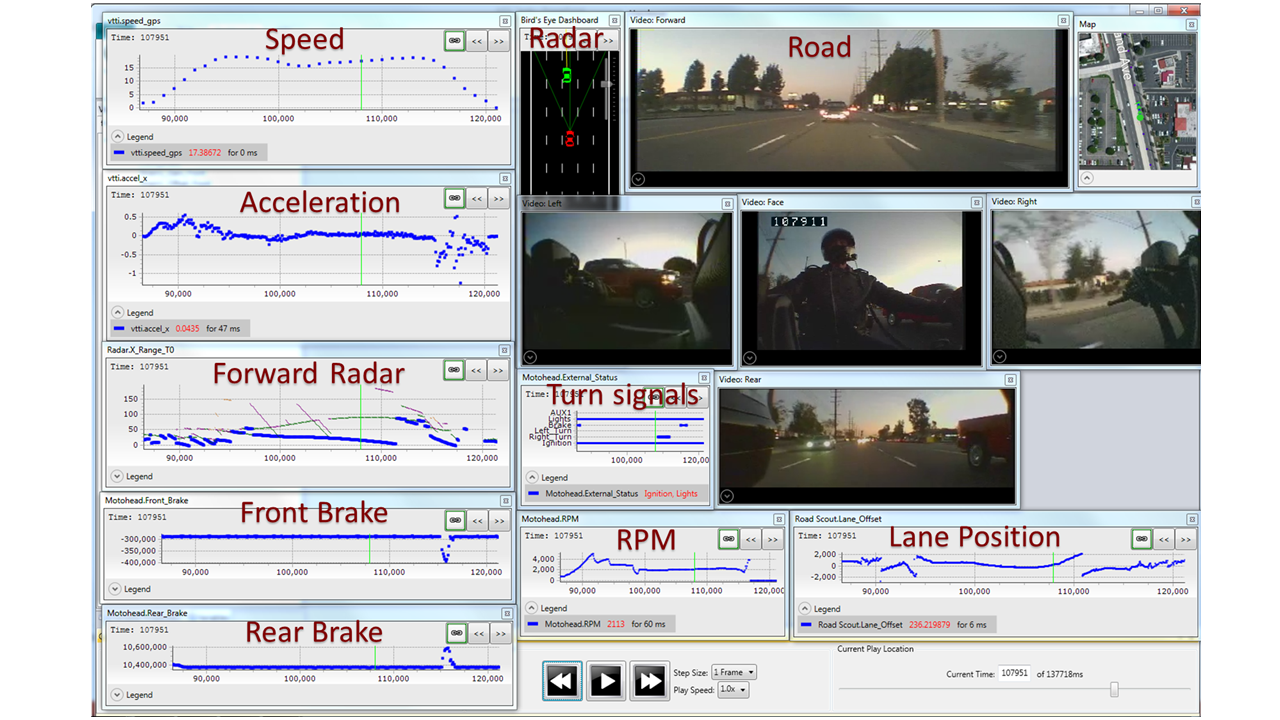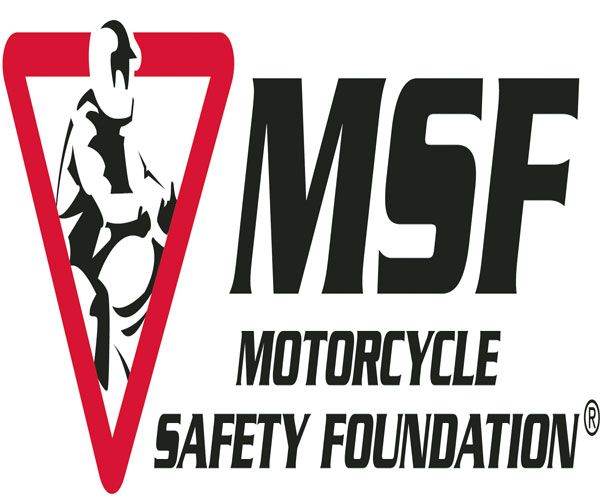Detailed Analysis of Risk Factors from the Motorcycle Safety Foundation
MSF 100 Motorcyclists Naturalistic Study Yields Detailed Results
• Research paper, “Factors that Increase and Decrease Motorcyclist Crash Risk,” now available
• Analysis reveals 12 factors that increase the risk of crashing and five factors that decrease the risk of crashing
• MSF 100 Motorcyclists Naturalistic Study is the first of its kind
• Data gathered during the study will fuel deep analysis and traffic safety improvement strategies for years to come
• Results presented at 11th International Motorcycle Conference in Cologne, Germany, October 4
IRVINE, Calif., Oct. 27, 2016 – The Motorcycle Safety Foundation completed its first major analysis of the MSF 100 Motorcyclists Naturalistic Study and found 17 key factors that could help improve traffic safety. The analysis was first presented at the 11th International Motorcycle Conference in Cologne this month. The research paper, “Factors that Increase and Decrease Motorcyclist Crash Risk,” and its associated slide presentation, are available here:
• Research Paper
• Slide Presentation
A naturalistic traffic study differs from traditional research, where a participant is put into a laboratory-type scenario or has to crash first and then recall details after the fact.
“This is the first time continuous riding data has been collected by motorcyclists,” said Shane McLaughlin, group leader of the Motorcycle Research Group at the Virginia Tech Transportation Institute. “The approach is identifying risk factors at a level of detail that riders can relate to and act on to improve their own safety.”
During the four-year MSF 100 Motorcyclists Naturalistic Study, conducted by VTTI on behalf of sponsor MSF, data were collected from instruments installed on motorcycles owned by study participants as the bikes were ridden in normal day-to-day use. Sensors and video cameras recorded motorcycle operator inputs such as steering, acceleration, braking and lean, as well as recording motions of the motorcycle, current riding conditions and the actions of surrounding traffic.

VTTI researchers use stream-compilation tools to analyze video and data captured by onboard instrumentation.
The study was designed to track comprehensive, real-time routine riding that would likely include near crash, pre-crash and actual crash data that had heretofore been unavailable. Researchers have confirmed that owners quickly grew accustomed to the installed equipment and rode normally, without regard to the instrumentation or that they were being monitored.
Approximately 30,000 trips were recorded, representing over 9,300 hours of riding and a total of 366,000 miles. The study included frequent riders, who rode 145 days per year on average, and infrequent riders, who rode 30 days per year on average. Participant ages ranged from 21 to 80; 78 of the riders were male and 22 were female.
Thirty crashes occurred during the four-year study. Seventeen were low-speed or stationary “capsizes.” In 19 crashes, including some of the capsizes, the motorcycle and rider both hit the ground; in five of the 19, the rider required medical attention but no serious injuries were reported. Evaluating those crashes plus 122 near-crashes revealed 12 factors that increase the risk of crashing or nearly crashing (C/NC) and five factors that decrease the risk of C/NC. For example, the risk of crashing or nearly crashing at an intersection is 2.9 to 40 times higher (depending on the type of intersection) than riding on road or highway segments devoid of intersections. Aggressive riding increases the risk of C/NC by nearly 18 times. Conversely, carrying a passenger reduces risk by nearly two-thirds. These findings have been and will be valuable for the continuous improvement of MSF curricula.
“This work has already begun to identify the factors that motorcyclists, MSF’s curriculum developers, professional MSF RiderCoaches who operate in 47 states, and government entities can address to improve traffic safety,” said MSF President and Chief Executive Officer, Tim Buche.
In 2008, NHTSA commissioned VTTI, the leader in this type of research, to investigate the feasibility of using the naturalistic methodology on motorcycles. VTTI tested camera, sensor, and data acquisition hardware to see if it was feasible to collect useful riding data over extended periods on participant motorcycles. The work provided the initial strategies that were later implemented in the MSF’s 100 Motorcyclists Naturalistic Study.
Four different locations were used to administer the study to provide a variety of riding and weather conditions, roadway environments, and traffic densities. In addition to VTTI’s headquarters in Blacksburg, Va., the other data collection facilities were the MSF headquarters in Irvine, Calif., and the Motorcycle Mechanics Institute campuses in Orlando, Fla., and Phoenix, Ariz. VTTI recruited 100 volunteer participants who owned one of seven motorcycle models representing the most popular categories of on-road motorcycles in use today: Suzuki GSX-R, Kawasaki Ninja, Honda Rebel, Yamaha V-Star, Harley-Davidson Sportster, Honda Gold Wing and Harley-Davidson Ultra Classic.
The biennial International Motorcycle Conference, co-sponsored by the Institute for Motorcycle Safety (ifz) and the Motorcycle Safety Foundation, is a major multi-disciplinary gathering of researchers and others invested in motorcycling safety.
The Virginia Tech Transportation Institute conducts research to save lives, time, money, and protect the environment. One of seven university-level research institutes created by Virginia Tech to answer national challenges, the Virginia Tech Transportation Institute continually advances transportation through innovation and has impacted public policy on the national and international levels. For more information, please visit vtti.vt.edu.
The Motorcycle Safety Foundation® promotes safety through rider training and education, operator licensing tests, and public information programs. The MSF works with the federal government, state agencies, the military and others to offer training for all skill levels so riders can enjoy a lifetime of safe, responsible motorcycling. Standards established by the MSF® have been recognized worldwide since 1973. The MSF is a not-for-profit organization sponsored by BMW, BRP, Harley-Davidson, Honda, Kawasaki, KTM, Piaggio, Polaris Motorcycles, Suzuki, Triumph and Yamaha. For safety information or to enroll in the RiderCourse nearest you, visit msf-usa.org or call (800) 446-9227.

